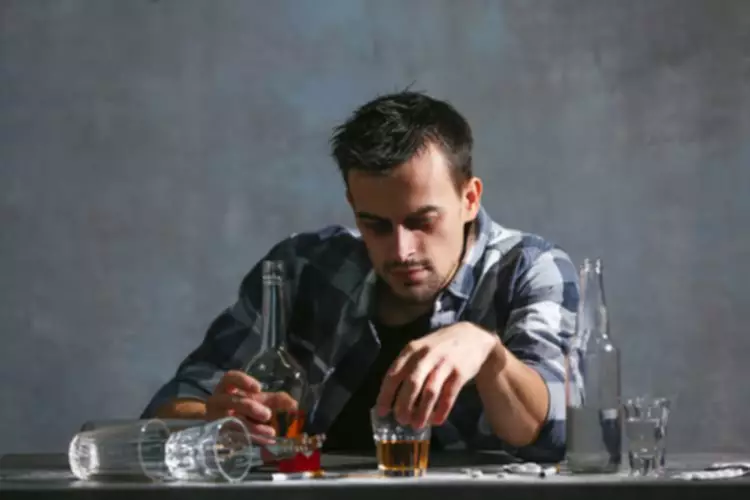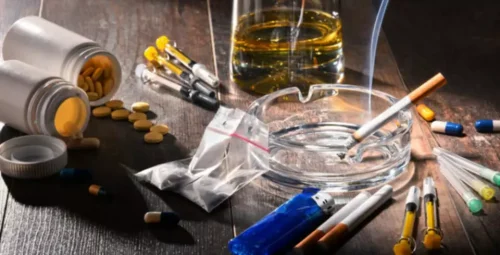
Download, read, and order free NIMH brochures and fact sheets about mental disorders and related topics. Drugs and alcohol can rewire the brain, disrupting function and leading to dependency. It results in a distorted value system that shifts toward supporting ongoing substance use.
- Your loved one’s addiction may even be so overwhelming that it seems easier to ignore it and pretend that nothing is wrong.
- An addiction professional helps figure out the scope of the issue and what treatment options would be right.
- People use cannabis by smoking, eating or inhaling a vaporized form of the drug.
- Alcohol addiction, also known as alcoholism, is a disease that affects people of all walks of life.
- Hoping the person will get better on their own won’t change the situation.
Best Online Therapy Platforms We Tried and Tested
They likely don’t even realize they’re behaving this way, and they may not remember once the effects of the alcohol wear off. Someone with AUD may also become angry or irritable when they don’t have access to alcohol because they’re experiencing withdrawal. Finding the right way to approach someone you think may have an alcohol use disorder can be tough. Before you speak with them, try putting yourself in their shoes. The most important thing is to let them know that you care and that you’ll be there when they need your support.
Don’t become codependent
Residential treatment or “rehab” facilities provide intensive treatment for alcohol abuse or addiction. Your loved one resides at a special facility for 30 to 90 days and receives treatments such as detox, therapy, and medication. Your role doesn’t end when your loved agrees to seek help. Recovery is an ongoing process, requiring time and patience.
Experiential Therapy
These programs follow the 12-step model of recovery and the 12 traditions, which were created by the founders of Alcoholics Anonymous (AA) and Narcotics Anonymous (NA). Because these programs allow people to adapt the steps to their needs, many have found them struggling with alcohol addiction immensely helpful during their recovery journey. There are many treatment options available for people struggling with an addiction to drugs or alcohol. These include inpatient and outpatient rehab, ongoing support groups, and multiple kinds of therapies.
Maybe you don’t think you depend on alcohol exactly, but you still wonder whether you might be drinking too much. Expose your teen to healthy hobbies and activities, such as team sports, Scouts, and after-school clubs to discourage alcohol use. Remain calm when confronting your teen, and only do so when everyone is sober. Explain your concerns and make it clear that your worry comes from a place of love. Consider professional help or support for you and your family.
- Your loved one’s primary care doctor or GP can evaluate their drinking patterns, assess their overall health and any co-occurring disorders, and provide treatment referrals.
- Remind them that they’re valued, they can do this, and they’re not alone.
- Medications can also deter drinking during times when individuals may be at greater risk for a return to drinking (e.g., divorce, death of a family member).
- Psychological, genetic, and behavioral factors can all contribute to having the disease.
- To stop drinking alcohol, you first need to understand your relationship with drinking.
- You can also try one of HelpGuide’s guided audio meditations to help you stay calm and focused as you make this challenging journey.
After finishing an addiction treatment program, it is highly recommended that a patient join a peer support group. Support groups are instrumental in staying on the path of recovery once out of treatment, allowing https://ecosoberhouse.com/ for long-term continued care after treatment. In addition, the individuals you meet in support groups can offer encouragement throughout the recovery process and be an invaluable source of support.

Tips for talking to someone about their drinking: Things that can HELP
Researchers say these hopeful findings are significant because they might inspire people to keep attempting recovery even after they endure multiple relapses. It typically takes eight years or longer to achieve long-term remission even with high quality treatment and medical care. Studies show people usually recover, but as with Rasco and Mable-Jones, the process happens slowly after multiple relapses. Similarly, the roughly 95,000 deaths each year in the U.S. attributed to alcohol represent a fraction of high-risk drinkers. Researchers say this data — and this lived experience — contradicts a widespread misperception that substance-use disorder is a permanent affliction and often fatal. But in a pattern researchers say is common, Mable-Jones‘ illness eventually eased.
The pathway to healing and recovery is often a journey that can progress over multiple years. Addiction not only involves the individual suffering from the substance use disorder, but their partner, their family, and their friends as well. The NIMH Strategic Plan for Research is a broad roadmap for the Institute’s research priorities over the next five years. Learn more about NIMH’s commitment to accelerating the pace of scientific progress and transforming mental health care.

This disorder also involves having to drink more to get the same effect or having withdrawal symptoms when you rapidly decrease or stop drinking. Alcohol use disorder includes a level of drinking that’s sometimes called alcoholism. Understanding the available treatment options—from behavioral therapies and medications to mutual-support groups—is the first step.